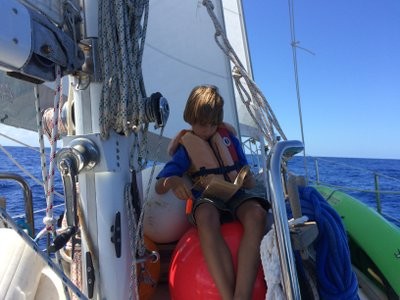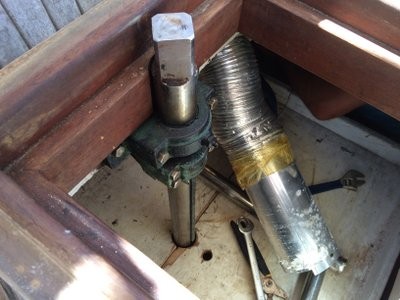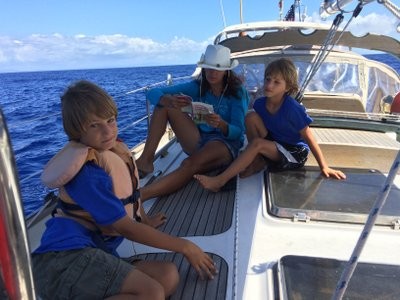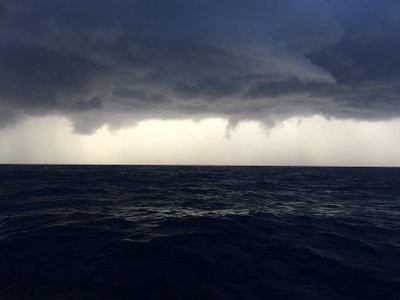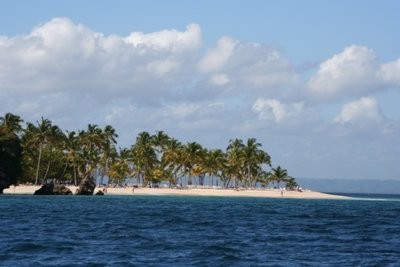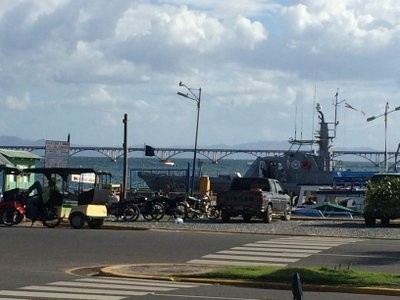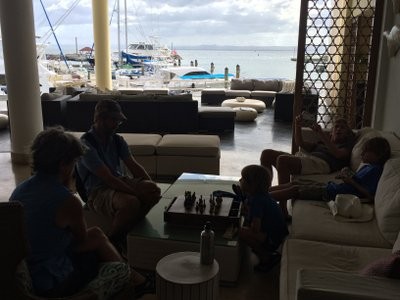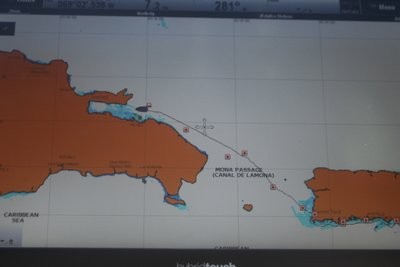 [for some reason, this never posted]. This is our first overnight passage in quite a while. We leave Boqueron at 8 am. For much of the day it’s the nicest sail we’ve had in a long time. It’s so tranquil that even Malachi, the most susceptible of us to seasickness, is able to read for hours. I’ve forgotten how enjoyable and relaxing sailing can be. I go out on the bowsprit and lay there listening to the waves and the wind.
[for some reason, this never posted]. This is our first overnight passage in quite a while. We leave Boqueron at 8 am. For much of the day it’s the nicest sail we’ve had in a long time. It’s so tranquil that even Malachi, the most susceptible of us to seasickness, is able to read for hours. I’ve forgotten how enjoyable and relaxing sailing can be. I go out on the bowsprit and lay there listening to the waves and the wind.
At some point, Matt hears some tiny noise that no one else notices. He investigates and finds the bolts from the rudder post are loosening. He gets his tools and crawls through Joshua’s berth to the tiny double doors at the end where he can tighten them. At 4 pm there is rain and then rough seas all night. I put the boys to bed at 7:30 pm, pack Matt some snacks and go to bed by 8 pm. I get tossed around for a few hours and can’t wedge
myself in tight enough to sleep. When it’s my watch, Matt gives me an update on what’s going on and shows an approaching tanker on the chart. “What should I do if it gets too close?” I ask him, meaning head more off shore or inland. He sighs and looks at me with a mixture of concern and despair. “Maybe, … I don’t know…. get out of the way?” he suggests with just a hint of irritation. It’s 1 am and he’s tired. I’m hoping he will sleep until 5 am but he comes up again at 3 am. I go down to sleep and then cover him from 5-7 am.
Around 10 am we pull into Puerto de Bahia de Samaná. The Dominican Republic (DR) is beautiful and lushly green. On the way in, we see a huge leatherback sea turtle and the whales we were hoping for. Two of them come close enough to get photos from the boat. Once we finally dock, we raise our quarantine flag and the flag of the DR. We are not allowed to leave the boat until we clear customs and immigration. We just want a
shower, food and sleep. After waiting on the boat for a while, the government officials board. El Comandante is imposing, in both his demeanor and uniform. I see his big black military boots first as he comes down the companionway. The customs officer also comes on board and peers in all of the berths. What’s he looking for? I wonder. Stowaways? Cigars? Contraband chocolate? The heat is raging outside and they are perspiring. I offer both officials some ice water. I think this earns some points and might mean they don’t comment on the pile of fruit and vegetables sitting to our right. The guide book says they’ll ask for a tip and the author of such guidebook is clearly irritated and offended by this cultural practice. I’m not. I lived here for two years and that’s just how things get done with the government. Plus, if the author could see some of the domiciles, I’m sure he’d consider the tip a donation to making the world a better place. We are ready to pay. Matt gracefully asks about customs payment but we are simply told we pay in the office
and need to check out before we leave; no official bribery takes place. This marina/resort is gorgeous and exactly what we need to recover. There is a beautiful open air lobby, infinity pools, nice restaurants, good showers, places to hang out and get wi-fi, etc. Our plan is to make each of these six 24-36 hour passages with two days of rest in between them (it’s actually one day of rest and a day to clean up the boat and prepare for the next one). After showering, we get a second wind. We see Jim and Karen, our co-travelers, and all get a ride into town together to get some local food. I’m starting to get a headache. We pass the usual cool stuff on the way through town: a truck loaded with 500 pairs of shoes for sale; women walking with baskets of fruit on their heads; small bakeries and businesses. A funeral blocks the traffic so our driver simply crosses to the ‘wrong’ side of the road and continues our progress through head-on traffic. After food (papaya fruit shakes, fried
cheese, plantains, conch) we get ice cream to celebrate our arrival to a new country. By this time, my headache is raging and we all need some sleep so we head back to the marina. The next day, despite the siren call of waterfalls, horseback rides and Carnival, I tell Matt I think we should just rest. He breathes a sigh of relief and is happy to oblige. We have a celebration meal at the restaurant near the pool. It feels wonderful to just stop and rest.
The next morning it’s time to head out again. El Comandante and the intelligence officer again board the boat. His English is good and we switch back and forth between English and Spanish. In going through the requisite paperwork, El Comandante is very clear and explicit in saying that we only pay once we leave the country (i.e., at our next and last DR port) at which point we will be given more documents. He directs most of his words, in English, to Matt as captain. He then switches to Spanish and, in very descriptive and flowery language, he directs his conversation to me and says how much he enjoyed having us in the country and that he hoped we and the boys enjoyed our stay and perhaps 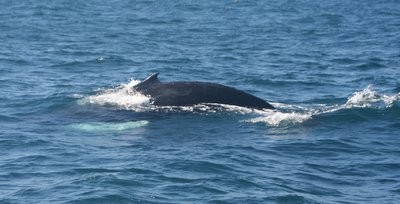 we would return some day and, if we were so inclined, we could make a special gift to him and the intelligence officer. I nudge Matt who had told me earlier he had a bill in his pocket and was ready. Matt hands it to him. I tighten when I see what the bill is and realize it’s not enough. El Comandante stiffens a bit and slowly folds the bill and puts it in his pocket. It is an awkward leave-taking. Once they go, I tell Matt it should have been a US $20. Not wanting to offend, Matt goes after him and gives him extra money. We both exhale and just want to get off the dock. Once we’ve left, I turn to Matt. “Who,” I ask him, “would be able to deal with a non-US uniformed military officer who has the power to let you leave the port or not and decline to make a ‘gift’? Does anyone even take that option?” As they say, when in Rome …
we would return some day and, if we were so inclined, we could make a special gift to him and the intelligence officer. I nudge Matt who had told me earlier he had a bill in his pocket and was ready. Matt hands it to him. I tighten when I see what the bill is and realize it’s not enough. El Comandante stiffens a bit and slowly folds the bill and puts it in his pocket. It is an awkward leave-taking. Once they go, I tell Matt it should have been a US $20. Not wanting to offend, Matt goes after him and gives him extra money. We both exhale and just want to get off the dock. Once we’ve left, I turn to Matt. “Who,” I ask him, “would be able to deal with a non-US uniformed military officer who has the power to let you leave the port or not and decline to make a ‘gift’? Does anyone even take that option?” As they say, when in Rome …

